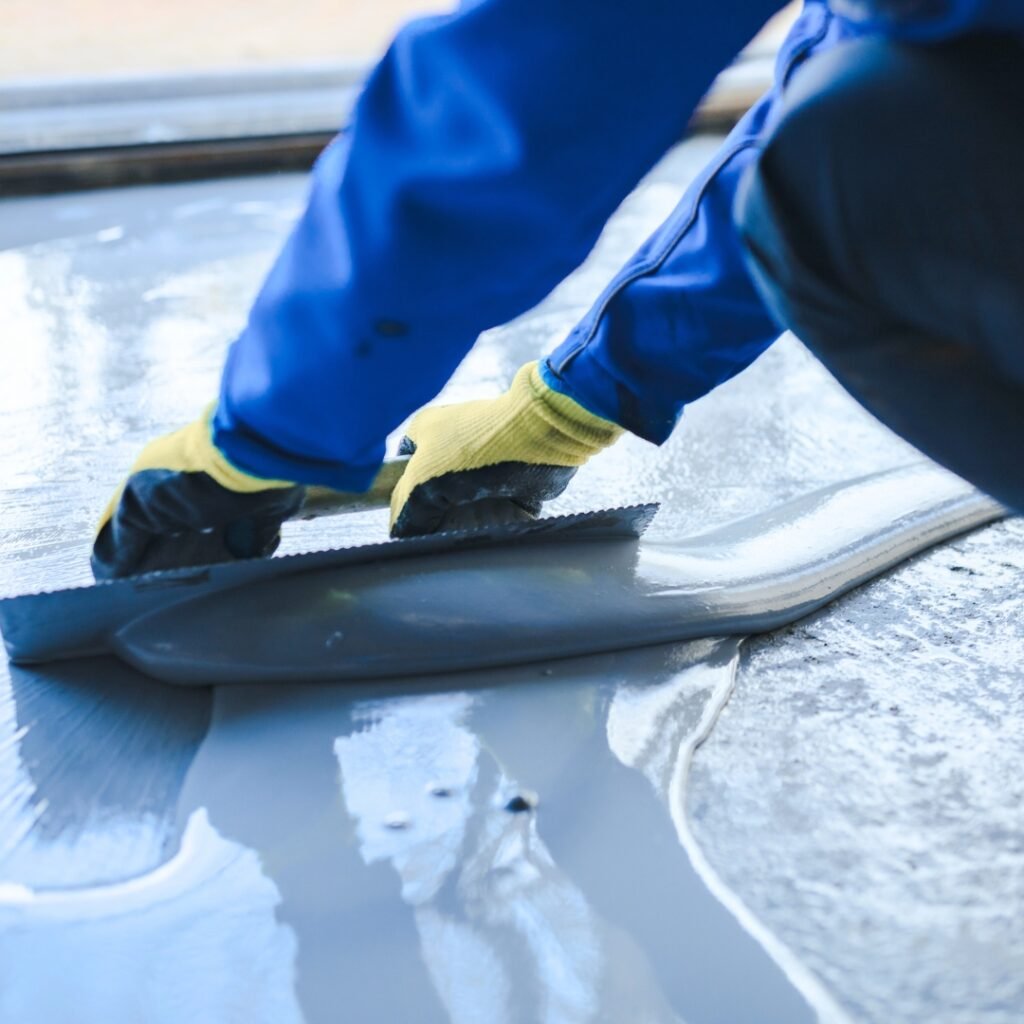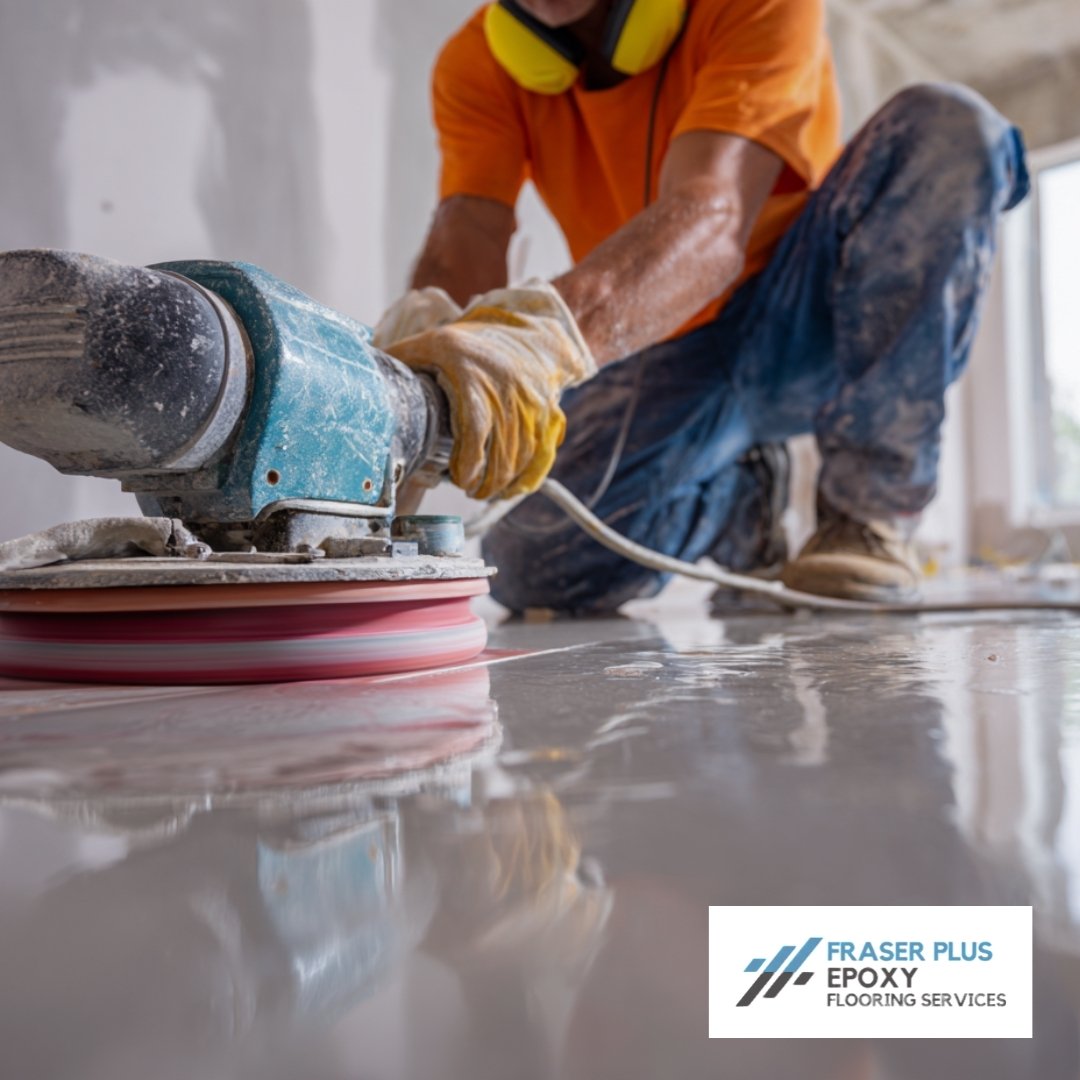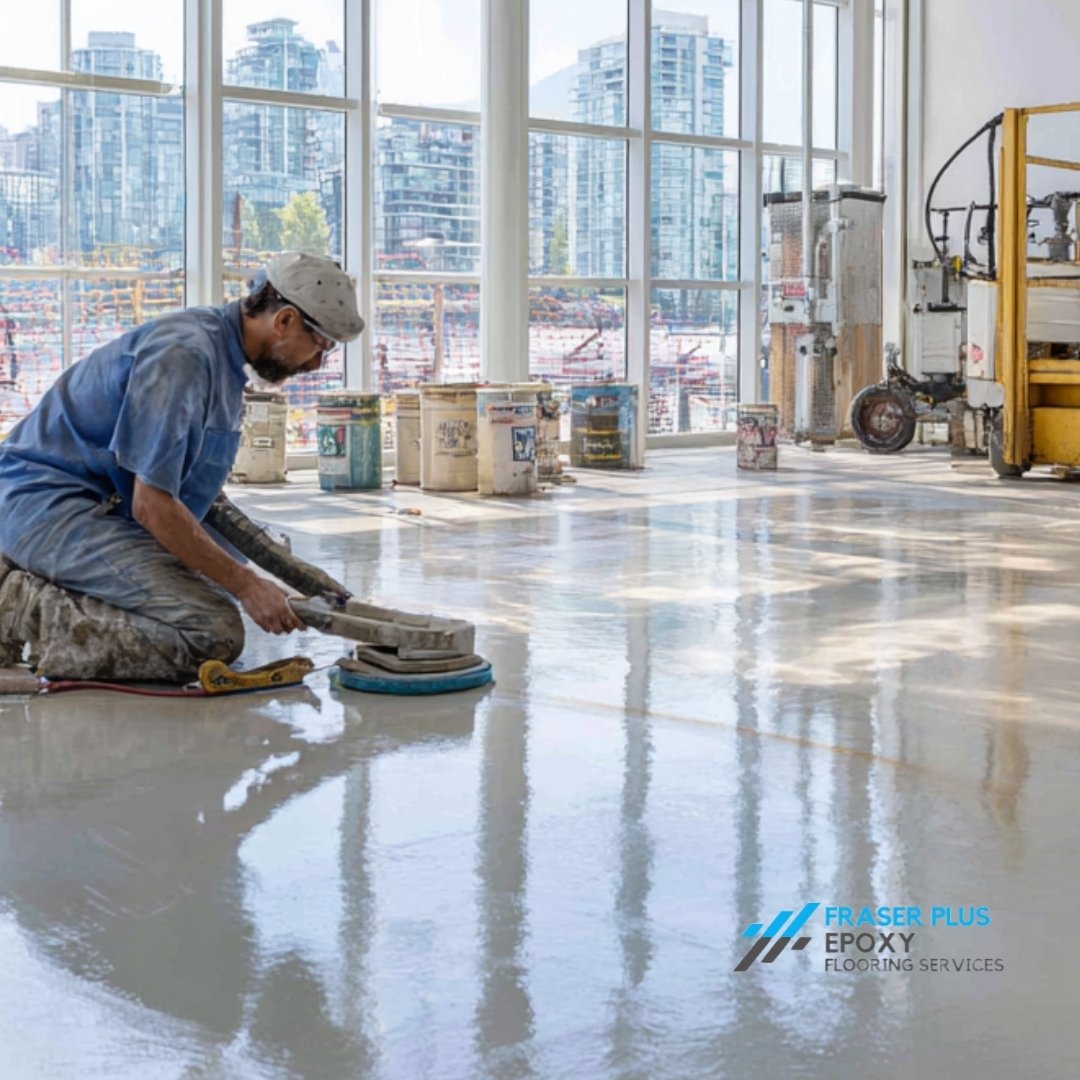Epoxy flooring has become a premier choice for residential, commercial, and industrial spaces in Vancouver, BC, thanks to its exceptional durability, chemical resistance, and sleek aesthetic. However, to fully capitalize on these benefits and extend the lifespan of your epoxy floor, rigorous and knowledgeable maintenance is essential. Fraser Plus Epoxy, a leading expert in epoxy flooring solutions in Vancouver, shares comprehensive epoxy floor maintenance tips grounded in industry best practices and tailored for the unique environmental conditions of the region.
Understanding the Importance of Proper Epoxy Floor Maintenance
Epoxy floors are engineered to withstand heavy traffic, chemical spills, and abrasion, making them a cost-effective flooring solution. Yet, neglecting routine care can lead to surface dullness, loss of gloss, and even structural degradation of the epoxy coating. Vancouver’s fluctuating climate-with its cycles of moisture, temperature changes, and urban pollutants-can accelerate wear if maintenance is insufficient.
Proper maintenance not only preserves the aesthetic appeal but also maintains the structural integrity and slip resistance of the floor, crucial for safety compliance in commercial settings. According to industry data, well-maintained epoxy floors can last 10 to 20 years, whereas neglected floors may require premature recoating or replacement, significantly increasing lifecycle costs.
Pre-Maintenance Considerations: Floor Condition Assessment
Before initiating maintenance, Fraser Plus Epoxy emphasizes the importance of assessing the floor’s current condition. Cracks, chips, or uneven surfaces disrupt the epoxy’s protective barrier and can exacerbate deterioration under traffic loads. Vancouver’s concrete substrates are prone to such imperfections due to freeze-thaw cycles and moisture ingress.
Professional contractors recommend repairing these defects using specialized patching compounds to restore a smooth, level surface prior to any maintenance or recoating efforts. This ensures the epoxy coating performs optimally and prevents moisture entrapment that can lead to delamination.
Daily and Routine Cleaning Protocols
1. Dry Cleaning
Daily removal of dust, dirt, and debris is critical to prevent surface abrasion. Fraser Plus Epoxy advises sweeping with a soft-bristle broom or using a dust mop to avoid scratching the epoxy finish. In high-traffic commercial or industrial environments typical in Metro Vancouver, daily sweeping prevents dirt accumulation that could degrade the floor’s gloss and slip resistance.
2. Wet Cleaning
Weekly wet cleaning complements dry sweeping by removing grime and residues that dry cleaning cannot eliminate. Use a mop dampened with warm water and a mild, pH-neutral detergent specifically formulated for epoxy floors. Avoid excessive water usage, as standing moisture can penetrate seams and weaken adhesive bonds. Thorough rinsing is essential to remove detergent residues that can dull the epoxy surface over time.
3. Use of Proper Cleaning Tools and Products
Avoid abrasive tools such as steel wool or stiff brushes that can scratch and damage the epoxy coating. Instead, opt for soft-bristled brushes or microfiber mops. Cleaning agents must be free of acidic or alkaline substances, which degrade epoxy resin chemically. Fraser Plus Epoxy recommends selecting cleaning products labeled safe for epoxy floors to maintain coating integrity and appearance.
Managing Stains and Spills Effectively
In Vancouver’s commercial kitchens, garages, and manufacturing facilities, epoxy floors often encounter oil, grease, and chemical spills. Prompt spill management is vital to prevent staining and surface damage.
- Oil and Grease: Blot spills immediately with absorbent materials. Follow with a pH-neutral cleaner applied gently with a soft brush to lift residues without harming the epoxy.
- Chemical Spills: Neutralize hazardous chemicals using appropriate absorbents and clean according to safety protocols. Early intervention prevents chemical etching and discoloration.
- Other Stains: Food, paint, and ink stains require specific treatments; mild detergents suffice for food spills, whereas paint and ink may need specialized removers compatible with epoxy coatings.
Preventative Measures to Extend Epoxy Floor Life
- Mat Placement: Installing entrance mats reduces dirt and moisture ingress, a major contributor to epoxy wear in Vancouver’s rainy climate.
- Traffic Control: Use protective pads under heavy equipment or furniture to prevent gouging or indentation.
- Regular Inspection: Schedule periodic professional inspections to identify and address minor damages before they escalate.
Expert Epoxy Floor Maintenance Frequency Recommendations
Fraser Plus Epoxy advises the following maintenance schedule tailored to Vancouver’s environment and usage intensity:
- Daily: Sweep or dust mop high-traffic areas.
- Weekly: Wet mop with pH-neutral cleaner; scrub areas prone to oil and grease.
- Monthly/Quarterly: Deep cleaning with mechanized scrubbers and professional evaluation.
- Annually: Professional inspection and touch-up recoating as necessary to maintain gloss and protective properties.
Why Choose Fraser Plus Epoxy for Your Epoxy Floor Maintenance Needs?
Fraser Plus Epoxy stands out in Vancouver for its technical expertise, commitment to quality, and customized maintenance plans that align with industry standards and local conditions. Their team uses advanced diagnostic tools to assess floor health and employs cutting-edge cleaning technologies and products to preserve your investment.
By partnering with Fraser Plus Epoxy, clients benefit from:
- Proven maintenance protocols backed by extensive field experience.
- Tailored service schedules optimizing floor performance and longevity.
- Expert advice on preventive care and damage mitigation.
- Access to premium, eco-friendly cleaning products safe for epoxy coatings and the environment.
For Vancouver businesses and homeowners seeking unparalleled epoxy floor care, Fraser Plus Epoxy offers unmatched expertise and service excellence tailored to the unique demands of the local market.
Give us a call for a free quote!
FAQs
- How often should epoxy floors be professionally inspected in Vancouver’s climate?
Professional inspections are recommended at least once a year to detect early signs of wear or moisture damage, especially given Vancouver’s wet climate. Fraser Plus Epoxy offers comprehensive inspection services tailored to local conditions to help clients proactively maintain their floors. - Can Fraser Plus Epoxy provide customized maintenance plans for different industries?
Yes, Fraser Plus Epoxy specializes in creating industry-specific maintenance programs that address unique challenges, whether for commercial kitchens, warehouses, or healthcare facilities, ensuring optimal floor performance and compliance. - Is it safe to use commercial floor cleaning machines on epoxy floors?
Many commercial floor scrubbers are safe for epoxy floors if fitted with soft brushes or pads and used with appropriate cleaning solutions. However, improper machine use can cause surface abrasion, so professional guidance is recommended. - What are the signs that an epoxy floor needs recoating?
Signs include loss of gloss, increased surface scratches, minor cracks, and reduced slip resistance. Early recoating can restore protective properties without the need for full replacement. - How does UV exposure affect epoxy floors in outdoor or sunlit areas?
Prolonged UV exposure can cause yellowing or chalking of epoxy coatings not formulated with UV inhibitors. Fraser Plus Epoxy offers UV-resistant epoxy solutions for outdoor applications to maintain appearance and durability.
People Also Ask
- Can epoxy floors be repaired if damaged?
Yes, minor damages like chips or cracks can be repaired with epoxy patch kits or professional resurfacing, restoring the floor’s integrity and appearance without full replacement. - What is the best temperature range for applying epoxy coatings?
Optimal application temperatures typically range between 15°C and 25°C (59°F to 77°F) to ensure proper curing and adhesion, which is critical for long-term durability. - Are epoxy floors environmentally friendly?
Epoxy coatings are generally low in volatile organic compounds (VOCs) and have a long lifespan, reducing waste. Fraser Plus Epoxy uses eco-friendly products that meet environmental safety standards. - How resistant are epoxy floors to chemical spills?
Epoxy floors offer excellent chemical resistance to many acids, alkalis, and solvents, making them ideal for industrial environments. However, immediate spill cleanup is essential to prevent long-term damage. - Can epoxy flooring improve workplace safety?
Yes, epoxy floors can be formulated with anti-slip additives and high-visibility coatings, reducing slip and trip hazards and enhancing overall safety compliance.




